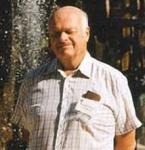 Apollo Moon Landings
Amelia Earhart
UFOs
Pearl Harbor Attack
http://www.smithsonianconference.org/conspiracy/
Apollo Moon Landings
Amelia Earhart
UFOs
Pearl Harbor Attack
http://www.smithsonianconference.org/conspiracy/
 Apollo Moon Landings
Amelia Earhart
UFOs
Pearl Harbor Attack
http://www.smithsonianconference.org/conspiracy/
Apollo Moon Landings
Amelia Earhart
UFOs
Pearl Harbor Attack
http://www.smithsonianconference.org/conspiracy/
 Apollo Moon Landings
Amelia Earhart
UFOs
Pearl Harbor Attack
http://www.smithsonianconference.org/conspiracy/
Apollo Moon Landings
Amelia Earhart
UFOs
Pearl Harbor Attack
http://www.smithsonianconference.org/conspiracy/
 Sybil Exposed
Read the article on Salon.com:
http://tinyurl.com/SybilExposed
Sybil Exposed
Read the article on Salon.com:
http://tinyurl.com/SybilExposed
 Dan Werthimerby Tucker Hiatt
UC Berkeley astronomer Dan Werthimer delivered a seductive break-out session at SkeptiCal 2011 entitled "XXX Astronomy: Exoplanets, Exobiology, and Extraterrestrials."
On that May 29th date at Berkeley's Double Tree Hotel, some 50 eager space cadets heard Werthimer talk about all aspects of SETI, the Search for Extraterrestrial Intelligence.
Werthimer is the chief scientist of the SETI@home project, Earth's most popular search for ET. SETI@home gathers data from the planet's most sensitive radio telescope in Arecibo, Puerto Rico, and then shares those data with some five million participants worldwide. The participants' personal computers analyze the data for any trace of unnatural radio signals. Collectively, SETI@home computers constitute the most powerful parallel processor ever created.
Werthimer's presentation covered the past, present, and future of SETI: from the Giordano Bruno's heretical -- and fatal -- 16th-century assertion that other inhabited worlds exist, to the latest high-tech search for optical laser beacons between the stars.
Dan Werthimerby Tucker Hiatt
UC Berkeley astronomer Dan Werthimer delivered a seductive break-out session at SkeptiCal 2011 entitled "XXX Astronomy: Exoplanets, Exobiology, and Extraterrestrials."
On that May 29th date at Berkeley's Double Tree Hotel, some 50 eager space cadets heard Werthimer talk about all aspects of SETI, the Search for Extraterrestrial Intelligence.
Werthimer is the chief scientist of the SETI@home project, Earth's most popular search for ET. SETI@home gathers data from the planet's most sensitive radio telescope in Arecibo, Puerto Rico, and then shares those data with some five million participants worldwide. The participants' personal computers analyze the data for any trace of unnatural radio signals. Collectively, SETI@home computers constitute the most powerful parallel processor ever created.
Werthimer's presentation covered the past, present, and future of SETI: from the Giordano Bruno's heretical -- and fatal -- 16th-century assertion that other inhabited worlds exist, to the latest high-tech search for optical laser beacons between the stars.
 William R. CorlissOne of the most interesting and scientifically-important people I ever met was the independent scientist William R. Corliss. Since the 1970s, he was by far the world's finest collector, categorizer, and ranker of scientific anomalies. He made himself the world's greatest authority on things that don't fit the paradigms of the times.
I had a long meeting with him in 1988, and corresponded several times with him afterward. He was always a scrupulous scientist and a quiet, reserved, proper gentleman. Bill died of a heart attack on July 8th, age 84.
Bill experienced organized Skeptics as debunkers, enforcers for mainstream-paradigm-as-law, and thus enemies of anomalies. He definitely recognized that some claims are indeed bunk, deserving and needing debunking.
Science always notices a lot of things, and it takes time to fit these pieces into the puzzle - sometimes months, sometimes centuries. Until they fit, the odder pieces are anomalies. Narrow-minded swallowers of paradigms-they-are-taught ignore them whenever possible, and pooh-pooh them when th
William R. CorlissOne of the most interesting and scientifically-important people I ever met was the independent scientist William R. Corliss. Since the 1970s, he was by far the world's finest collector, categorizer, and ranker of scientific anomalies. He made himself the world's greatest authority on things that don't fit the paradigms of the times.
I had a long meeting with him in 1988, and corresponded several times with him afterward. He was always a scrupulous scientist and a quiet, reserved, proper gentleman. Bill died of a heart attack on July 8th, age 84.
Bill experienced organized Skeptics as debunkers, enforcers for mainstream-paradigm-as-law, and thus enemies of anomalies. He definitely recognized that some claims are indeed bunk, deserving and needing debunking.
Science always notices a lot of things, and it takes time to fit these pieces into the puzzle - sometimes months, sometimes centuries. Until they fit, the odder pieces are anomalies. Narrow-minded swallowers of paradigms-they-are-taught ignore them whenever possible, and pooh-pooh them when th